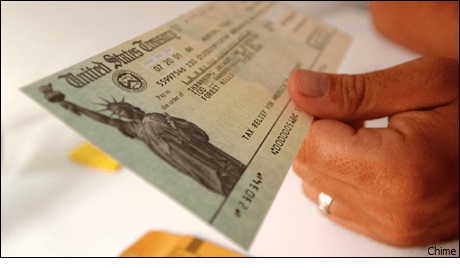
|
|

|
|
| April 16, 2024 |
|
Calculating recovery rebates from the stimulus 
WASHINGTON – (INT) - Congressman Paul Cook (R-San Bernardino County) provided these details on Recovery Rebate Eligibility.
Q: What is a recovery rebate? A: Recovery rebates are a new refundable tax credit for taxpayers’ 2020 taxes that were created by the CARES Act. Unlike most tax credits, recovery rebates are paid out immediately to Americans who qualify to receive them. This means that an American who qualifies for a $1,200 recovery rebate will receive a check (or direct deposit) for $1,200 within a few weeks, rather than having to wait until his or her 2020 taxes are filed next year. Q: Who qualifies for a recovery rebate and how much will an individual receive? A: All U.S. legal residents with an adjusted gross income under $75,000 (under $112,500 for head of household and under $150,000 married) who are not the dependent of another taxpayer and have a valid Social Security Number qualify for the full $1,200 rebate ($2,400 for married couples). They are also eligible for an additional $500 per child, limited to child dependents under the age of 17. Q: What happens if my adjusted gross income is higher than those thresholds? A: You still can qualify for a reduced payment if you are single and your income is less than $99,000, $146,500 for head of household filers with one child, and $198,000 for couples filing jointly with no children. The rebate amount is reduced by $5 for each $100 of adjusted gross income that exceeds the phase-out threshold. Q. What is adjusted gross income? A. Gross income includes your wages, dividends, capital gains, business income, retirement distributions, and other income. Adjustments to gross income include contributions to a retirement account, alimony payments, student loan payments, and other items. For most taxpayers, the largest adjustment to their gross income will be the “standard deduction” ($12,000 for individuals, $18,000 for heads of household, and $24,000 for married couples). You find your Adjusted Gross Income amount by subtracting these adjustments from your gross income amount. (Gross income – Adjustments = Adjusted Gross Income.) Your previous year’s tax return contains these figures. Q: What do I need to do in order to receive my rebate? A: For most people, you don’t have to do anything. Your rebate will be transmitted either electronically or by paper check, depending on how you received a refund or paid your taxes on the last tax return you filed. If you don’t file taxes, you will receive your rebate in the same method you receive your social security benefit. Q: Will seniors whose only income is from Social Security or a veteran whose only income is a veterans’ disability payment qualify for a recovery rebate? A: Yes. You must have a valid Social Security number to receive this rebate, meaning individuals who receive Social Security benefits are eligible. If you don’t file taxes, the IRS can use your Social Security Benefit Statement (Form SSA-1099) or your Social Security Equivalent Benefit Statement (Form RRB-1099) to determine the amount of your stimulus check. Q: Is this direct cash assistance money taxable? A: No. The recovery rebate money is not taxable because it’s treated like other refundable tax credits, such as the Earned Income Tax Credit, and is not considered income. Q: What if I haven't filed my 2019 tax return? A: Your rebate will be based on your 2018 return. Q: Will I have to pay back any amount if the recovery rebate, based on my 2019 adjusted gross income, is more than what it would be if based on my 2020 tax return? A: No. Even if your adjusted gross income on your 2020 tax return suggests an overpayment of rebates because your income was higher in 2020 than in 2019, you should not owe anything. Taxpayer Scenarios The following taxpayer scenarios can help illustrate how your income, filing status, or family status will impact your stimulus payment: Senior making $16,800 per year from Social Security Total Refund: $1,200 ----- Single Mother making $30,000 per year $1,200 (Herself) $500 (Child) Total Refund: $1,700 ----- Family of Four making $59,000 per year $2,400 (For filing jointly) $1,000 ($500 per child) Total Refund: $3,400 ----- Family of 5 earning $73,000 per year $2,400 (For filing jointly) $1,500 ($500 per child) Total Refund: $3,900 Story Date: April 23, 2020
|